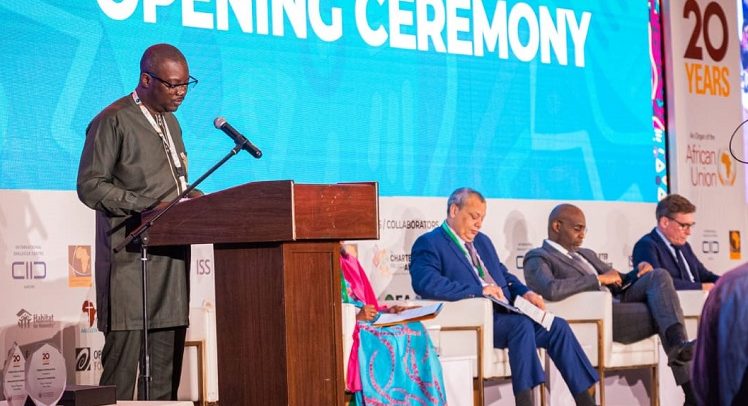William Carew
President of the European Economic and Social Committee (EESC), Oliver Röpke, has emphasised the enduring resilience of democracy in Africa despite recent challenges.
He noted that the continent maintains a strong commitment to democratic governance, even in the face of setbacks such as military coups in countries like Niger, Mali, and Burkina Faso.
Speaking at the 2024 ECOSOCC Public Forum in Accra, Oliver Röpke stated that, “Despite these setbacks, the spirit of democracy remains resilient among the African population, with data showing that in Africa, two-thirds of Africans still prefer democracy over any other form of government although there is a declining satisfaction with how democracy functions, leading to erosion of citizens’ trust in democratic governance.”
He added that, “Likewise, Europe is experiencing growing dissatisfaction among citizens with the way democracy works in that country, but also at the European level within the European Union.”
Head of African Union’s (AU) Economic, Social and Cultural Council (ECOSOCC) Secretariat, William Carew, speaking on the event theme, “Democracy and Institutional Resilience,” said Africa faces profound democratic and governance challenges that test the very foundation of the continent’s democratic institution.
He mentioned political instability, corruption, economic action, weak institutions, governance deficits, and the resurgence of unconstitutional changes of government affecting the collective vision for the continent’s future.
Despite the existence of robust normative frameworks like the African Charter on democracy, elections, and governance, William Carew emphasised the need for effective implementation of democratic norms and institutional reforms to address ongoing challenges.
He highlighted the recent unilateral withdrawals of Mali, Niger, and Burkina Faso from ECOWAS as a call for urgent action to uphold democratic principles.
“We continue to witness a worrying kind of military coups and democratic backslides, the recent unilateral withdrawal of Mali, Niger, and Burkina Faso from ECOWAS, a stark reminder of the urgent need for effective implementation of democratic norms and institutional reforms,” he pointed out.
William Carew said the escalation of insecurity within communities coupled with the perception of economic and political systems favour a privileged few at the expense of a marginalised population, creating an environment where military takeovers are increasingly viewed not only as a tolerable but as unnecessary remedy for societal use.
“This democratic backsliding in Africa is deeply concerning. We need urgent action from our governance institution and civil society has a pivotal role to play in this regard,” he added.
Former Prime Minister of Mali, Moussa Mara, emphasised the importance of civil society involvement in promoting democratic values across African countries. He stressed the need to strengthen governance systems within AU member states through frameworks like the African Charter on Democracy to address challenges and enhance peace and security on the continent.
By Prince Fiifi Yorke


